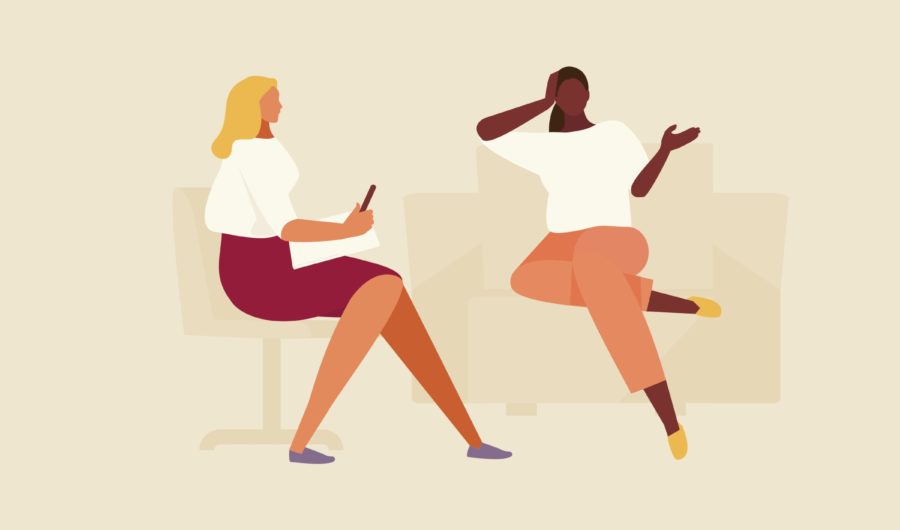Approximately 1 in 4 people in the UK will experience a mental health problem each year. The advice often given is to engage in therapy, but what do you do when the therapist doesn’t give the quick fix you expected?
Seeking help from a therapist can be daunting, which is why some people feel disheartened when therapy isn’t what they thought it was.
For starters – therapy is never going to be a quick fix, many things worth having aren’t easy therefore it’s important you start your therapy with realistic expectations and don’t expect major changes overnight. Although the therapist is the expert, it needs to be a partnership. Nothing can change if you are not willing to help yourself and the good news is, by going to therapy it is clear someone wants to do so.
No matter how determined you are, improving mental health is not going to happen instantly, it requires work and dedication. Added to this, the relationship with your therapist is just as important as the discussions you are having. This is why, if you feel like you’re not getting anywhere, it might just be that the specific therapist isn’t right for you.
We choose other relationships in our lives, such as friends and partners, but when it comes to choosing a therapist, people often don’t have the confidence to end the relationship if it’s not working out. People may feel like they are the problem and try to ‘stick it out’. It is key that you aren’t one of these people. You wouldn’t keep seeing a friend you don’t like and expect to benefit from that relationship, so why would you for a therapist? Whilst a therapist is a professional relationship, even if they are fully qualified, they will not help you if you don’t connect on a personal level. I am by no means suggesting you should be best friends with your therapist, but if you don’t feel comfortable with them after a few sessions – politely tell them and then try and find another.
Why do people change therapists?
People change therapists for a variety of reasons and everyone’s therapy follows a different course. Some reasons people change therapists are:
- You feel you are not making progress
- You cannot relate to your therapist
- The type of therapy is not right for you
- You may want a therapist who specialises in a particular type of therapy i.e., Cognitive Behavioural Therapy (CBT) or EMDR (eye movement desensitisation and reprocessing).
- You don’t like your therapist
- You feel that you can’t speak freely in your sessions
- You don’t feel listened to
- You don’t feel you can be open and honest with your therapist
- Your therapist is unreliable
- You don’t feel your therapist has enough experience to help with your issues
- You may want a therapist from a similar background
- You may want to switch to a therapist who understands the issues you might face based on your race, sexuality, gender identity, or cultural values.
- You would feel more comfortable with a therapist who offers telephone, video, or online therapy.
Whether one, multiple or none of these reasons apply to you, that’s fine. Only you can decide whether or not you want to change therapist.
How quickly will I know a therapist isn’t for me?
It depends, there is no objective answer. Some people realize that they’ve gotten as far as possible with their current therapist and others find out shortly after they’ve begun therapy that the therapist they’ve chosen isn’t right for them.
Due to the nature of therapy, many individuals become anxious when they realize this meaning many will stay with their therapist long after they should. This is usually because they believe this is easier than letting the therapist know they aren’t right for them. It’s vital to remember that you will not be the first or the last to think this way and, it’s not beneficial for either party to hide these feelings. Ultimately, therapy is done to help yourself and people start the process to better themselves. You cannot be helped to the same extent if you don’t connect with your therapist.
The reality is that you won’t always agree with your therapist. Some therapists will push you and challenge your existing beliefs whilst encouraging you to work towards change in your life. Sometimes the therapist’s particular approach will not match your personality. This is not the fault of the therapist; it is just that their particular model does not suit your needs. The key is to recognise the difference between a short-term amount of stress due to a specific issue you’re working on, or a minor difference in opinion and a longer-term, more serious issue that is interfering with your treatment moving forward.
Will my therapist hate me?
No! As discussed above, this is your therapy, and the aim is for you to get the best and most appropriate service that matches your needs.
Discussing your future needs with your current therapist will help you find closure as that relationship ends, it will help you identify what is not working in the current relationship and inform what you will need in your future therapy.
Your therapist will understand and will not take it personally if do not want to approach them directly. Within livelife you can easily change therapists at any time by calling or emailing one of our team. Even after a few sessions, your current therapist will know you well enough to enable them to recommend an appropriate pathway moving forward.
Although the decision to change therapists can be difficult, it is better to seek out the help you need, rather than leave therapy altogether. It is not unusual to change therapists and it does not mean you can’t be helped. When you have the right therapist, it can be life-changing.
words by Phil Sharples, livelife
READ MORE: Social Media Is Telling Me I Have ADHD… But Do I?














